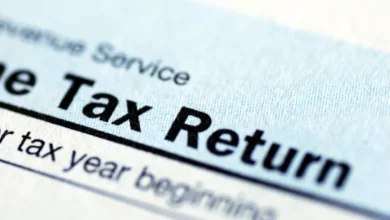Banks and Term Deposits
Banks and Term Deposits: A Closer Look at Investment Options Amid Changing Interest Rates
In the past year, interest rates have surged from near-zero to 4%, causing many Australians to rethink how they manage their savings. Should you place your money in term deposits, or are there better alternatives like bonds or shares? In an interview on ABC Radio Melbourne, financial advisor Remo Greco discussed these options in light of current economic conditions and the recent instability in global banking, particularly following events like the collapse of Silicon Valley Bank.
What Happens When Interest Rates Rise?
Greco explained that central banks typically increase interest rates to curb inflation, and they will continue to do so until something “breaks.” This idea reflects the broader notion that rapid interest rate hikes can cause financial instability, especially in smaller banks that may not be as well-managed. In the case of Silicon Valley Bank, a sudden rush of withdrawals led to a government-backed guarantee for all bank deposits in the US.

However, Greco pointed out that Australia’s banking system is very different. Australian banks are known for their conservative approach and strong regulation, making them much more resilient in comparison to their US counterparts. While there may be some global ripple effects, the likelihood of a similar crisis in Australia is low.
Should You Consider Term Deposits?
With rising interest rates, many Australians are exploring term deposits as a safe way to lock in higher returns. Greco emphasized that the current term deposit rates, which hover around 4.5%, are highly competitive compared to the average annual return from shares, which is generally 6-7%. For those looking for stability and guaranteed income, term deposits are a great option.
Bonds: A Shaky Investment?
Bonds, on the other hand, have been facing challenges recently, particularly due to concerns over a potential recession. Bond markets are seen as a more cautious investment compared to shares, as investors are focused on the risk of not getting their money back. In contrast, stock markets are often driven by optimism about future growth. However, in times of financial uncertainty, bond markets can serve as an early warning signal for what’s to come.
For those nearing retirement or already retired, Greco suggests a more defensive approach to investing, which might include allocating funds into bonds. While bonds carry lower returns, they offer stability and can provide a hedge against more volatile market conditions.
The Risk-Reward Balance: Bank Shares vs. Term Deposits
The question of whether to invest in bank shares or a term deposit is a common one, especially when bank stock prices are declining. Greco explained that while Australian banks are considered some of the safest in the world, they are still affected by global economic factors, such as the potential for a recession. In the current climate, where term deposits offer returns around 4.5%, buying bank stocks may present more risk than reward, given the volatility in the stock market.

Alternatives to Term Deposits: A Diversified Investment Strategy
For those willing to take on a bit more risk, such as younger investors, Greco recommends considering shares or exchange-traded funds (ETFs). By gradually investing in a diversified set of shares over a few years, young investors can build wealth for the long term. This strategy helps spread the risk and capitalizes on the potential for growth in the stock market over time.
Government bonds, bank bonds, and other income-generating investments have also become competitive options, offering returns between 4% and 6.5%. While these options can be more complex than simple term deposits, they may suit investors looking for higher yields and willing to take on slightly more risk.
Conclusion
In summary, as the financial landscape continues to evolve with rising interest rates and economic uncertainty, term deposits remain an attractive option for those seeking guaranteed returns and a low-risk investment. For more aggressive investors, shares, ETFs, and bonds present growth opportunities, but come with greater risk.
Whether you choose a conservative approach with term deposits or take a more adventurous route with shares or bonds, the key is to align your investment strategy with your financial goals and risk tolerance. And as always, seeking professional advice can help ensure that your financial decisions are sound in a changing economic environment.





